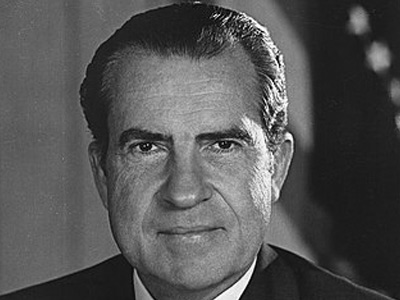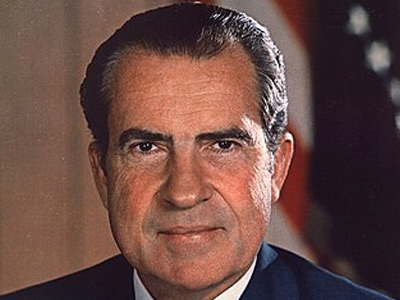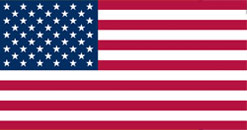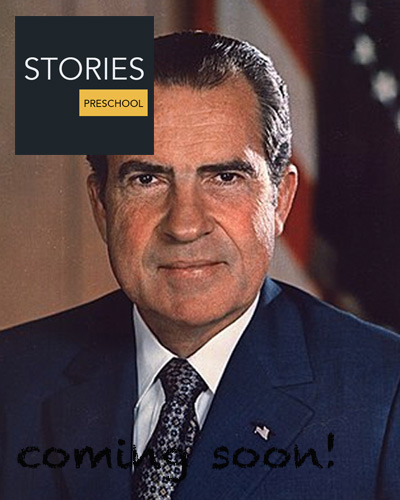1968 Presidential Election
At the end of 1967, Nixon told his family he planned to run for president a second time. Although Pat Nixon did not always enjoy public life (for example, she had been embarrassed by the need to reveal how little the family owned in the Checkers speech), she was supportive of her husband's ambitions. Nixon believed that with the Democrats torn over the issue of the Vietnam War, a Republican had a good chance of winning, although he expected the election to be as close as in 1960.
One of the most tumultuous primary election seasons ever began as the Tet Offensive was launched in January 1968. President Johnson withdrew as a candidate in March, after doing unexpectedly poorly in the New Hampshire primary. In June, Senator Robert F. Kennedy, a Democratic candidate, was assassinated just moments after his victory in the California primary. On the Republican side, Nixon's main opposition was Michigan Governor George Romney, though New York Governor Nelson Rockefeller and California Governor Ronald Reagan each hoped to be nominated in a brokered convention. Nixon secured the nomination on the first ballot. He selected Maryland Governor Spiro Agnew as his running mate, a choice which Nixon believed would unite the party, appealing both to Northern moderates and to Southerners disaffected with the Democrats.
Nixon's Democratic opponent in the general election was Vice President Hubert Humphrey, who was nominated at a convention marked by violent protests. Throughout the campaign, Nixon portrayed himself as a figure of stability during a period of national unrest and upheaval. He appealed to what he later called the "silent majority" of socially conservative Americans who disliked the hippie counterculture and the anti-war demonstrators. Agnew became an increasingly vocal critic of these groups, solidifying Nixon's position with the right.

These books are available for download with Apple Books on your Mac or iOS device
Nixon waged a prominent television advertising campaign, meeting with supporters in front of cameras. He stressed that the crime rate was too high, and attacked what he perceived as a surrender by the Democrats of the United States'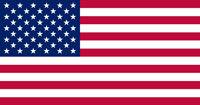 The United States of America (U.S.A. or USA), commonly known as the United States (U.S. or US) or America, is a country in North America. It is the world's third-largest country by both land and total area. The United States shares land borders with Canada to its north and with Mexico to its south. The national capital is Washington, D.C., and the most populous city and financial center is New York City. nuclear superiority. Nixon promised "peace with honor" in the Vietnam War and proclaimed that "new leadership will end the war and win the peace in the Pacific". He did not release specifics of how he hoped to end the war, resulting in media intimations that he must have a "secret plan". His slogan of "Nixon's the One" proved to be effective.
The United States of America (U.S.A. or USA), commonly known as the United States (U.S. or US) or America, is a country in North America. It is the world's third-largest country by both land and total area. The United States shares land borders with Canada to its north and with Mexico to its south. The national capital is Washington, D.C., and the most populous city and financial center is New York City. nuclear superiority. Nixon promised "peace with honor" in the Vietnam War and proclaimed that "new leadership will end the war and win the peace in the Pacific". He did not release specifics of how he hoped to end the war, resulting in media intimations that he must have a "secret plan". His slogan of "Nixon's the One" proved to be effective.
Johnson's negotiators hoped to reach a truce, or at least a cessation of bombings, in Vietnam prior to the election. On October 22, 1968, candidate Nixon received information that Johnson was preparing a so-called "October surprise" to elect Humphrey in the last days of the campaign, and his administration had abandoned three non-negotiable conditions for a bombing halt. Whether the Nixon campaign interfered with any ongoing negotiations between the Johnson administration and the South Vietnamese by engaging Anna Chennault, a prominent Chinese-American fundraiser for the Republican party, remains an ongoing controversy. While notes uncovered in 2016 may support such a contention, the context of said notes remains of debate. It is not clear whether the government of South Vietnam needed much encouragement to opt out of a peace process they considered disadvantageous.
In a three-way race between Nixon, Humphrey, and American Independent Party candidate former Alabama Governor George Wallace, Nixon defeated Humphrey by nearly 500,000 votes (seven-tenths of a percentage point), with 301 electoral votes to 191 for Humphrey and 46 for Wallace. In his victory speech, Nixon pledged that his administration would try to bring the divided nation together. Nixon said: "I have received a very gracious message from the Vice President, congratulating me for winning the election. I congratulated him for his gallant and courageous fight against great odds. I also told him that I know exactly how he felt. I know how it feels to lose a close one."
HISTORY
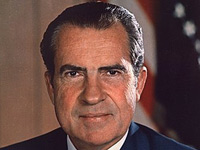
RESOURCES
This article uses material from the Wikipedia article "Richard Nixon (1913-1994)", which is released under the Creative Commons Attribution-Share-Alike License 3.0.
© Stories Preschool. All Rights Reserved.
